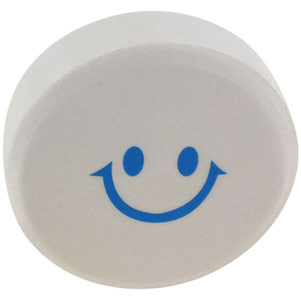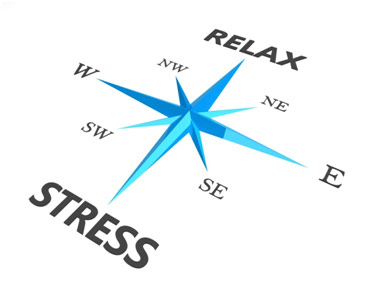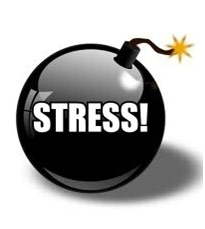
Happiness is not only the goal of parenting, it is also a most basic human goal. We are here to be happy, to find happiness and to enjoy it. We want to be happy with our relationships, with our families, at work, with our health, with money. We want to be happy with our friends and hobbies, with our achievements, with our homes. We want to be happy with what we have and we also want to be happy about some things we don’t have. For example, if I don’t have sick kids, that makes me externally happy.
One small thing that gets taken away from us helps us feel happy about what we have in our life. For example, it’s only when you get a muscle cramp from lifting too much that you learn to appreciate the simple ability to raise your hand to the steering wheel or to take off your shirt. That is basic human nature, to define happiness by comparing it to unhappy times.
The most common obstacle to happiness is stress. In reality, stress is fear. It is fear that manifests in tensions that drive us into primal behavior (fight or flight). In the old days, it was what made us freeze in the face of a lion. While in the past, it was very obvious that lions, snakes and other scary animals were the enemy, today, the enemy is inside of us. We get anxious and stressed just thinking about a possible scary future.
Stress is the reason most people are sick today. It is the reason for every emotional suffering and the number 1 killer in the world. More people die today from things related to stress than from accidents or war.
Stress today is an art. We are stressed so often these days that we have mastered this feeling. Stress changes our ability to think critically. Over time, we become so sensitive to it that even a mouse can become as scary as a lion. Our brains learn to jump to the defense even at the sight of an ant. We have reached a point where the fear is not always of something real. Today, all the “lions” are in fact shadows.
Preparing to encounter lions makes you see lions everywhere.
Ronit Baras
If you are one of those people who are constantly stressed, keep reading. You may find some tips in this post on how to examine those shadows and learn to reduce your fear of them.
Preparing for upcoming stress

Sometimes (and this can happen to all of us), we become anxious, which a form of stress regarding a possible (usually bad) future, in preparation for upcoming pain. We think that if we prepare ourselves for the worst, it will be easier to bear. For example, “If I prepare for her to tell me that she does not want to be with me, it will be easier”, or “If I prepare myself for not getting the job, it will be easier for me to manage the disappointment”. Unfortunately, it won’t.
We can prepare ourselves for good things, but it is unwise to prepare ourselves for bad things. Don’t get me wrong. We can take things into consideration, but preparing is a whole other story. The act of preparing for a bad thing triggers chemicals in the brain that will make you “see lions” in the most benign places. These chemicals limit our ability to make decision. We retreat to our most basic instincts: flight or flight. The brain’s main priority is to keep us alive and giving energy to our most essential survival resources, like breathing and heart beat. Other things that are not essential get ignored, like how to speak, how to feel, how to present yourself in a job interview, how to make love to your partner or how to bake a cake.
When we get stressed, we become dumber. Researchers found that when people are in a state of stress, their scores on basic tests drop down significantly. It is like temporary dumbness.
We can take into consideration that the future may not be exactly what we want it to be. This helps us take action to increase the chances of success. But be careful not to go too far. If you “plan” for the lions, you will see them everywhere.
Today, we have happiness down to a science. There are many definitions of happiness and each of us must define it for itself. Thanks to positive psychology researchers, we know more about the way our brain works in order to experience more of it.
I have been the “happiness” coach for a long time. For more than 20 years I have had the words “be happy” in my email address. People said it made them happy to get emails from me. In all that time, people often asked me if I was happy all the time. This makes me laugh. That is not what happiness is. Let me explain. Is it safe to say that the ultimate experience of happiness is orgasm? Imagine if you were “happy” like that all the time. What would your life be like? I will leave the answer to your wildest imagination.
Rating happiness

When we pay attention to our happiness, we learn to see the difference between 60% happy and 67% happy. This is a very effective emotional intelligence (EQ) technique. The first rule of EQ is to recognize your own feelings. That means recognizing whether you are 72% or 82% happy is important.
The happiness scale allows us to calculate the difference between the things that make us happy and the things that makes us stressed. If you give your happiness a rating of 1-100%, and your stress a rating of 1-100%, you subtract your happiness from your stress. If we get a positive number, we are more happy than not. Our goal is to increase this over time.
We all have happy moment and we all have stressful moments. Each of those moments appears on a personal rating scale. No two people will rate the same moment by the same percentage. But we can all come out happy in the end. What we need to do is to give the happy moments more value and less value to the stressful moments.
The most important thing you have to remember is that happiness and stress cannot be experienced together. We can experience happiness and then feel stressed about something 2 minutes later, but we cannot be both at the same time. So, every second of stress, is one second less of happiness that adds up to the calculated sum of your happiness.
Like the threat of ancient times: the lion, people sometimes confuse between stress and genuine threat. Fear of the lion is not the same as being confronted by the lion. Stress is not the lion itself, it is the response to thinking/ believing there is lion in the area. People who find themselves stressed a lot often use mechanisms to protect themselves from the lion, when in fact, they should be focusing on ways to reduce their reaction to the shadow of the lion.
I’m not saying you should confront your fears head on all the time. If you are afraid of lions, you won’t go to the jungle for a camping trip. There is no point putting yourself in the danger zone voluntarily. Tut the most important thing is to work on your stress mechanism and to teach yourself to see the real animal in front of you.
In order to work on limiting stress, first we need to recognize when we are stressed. The more often we are stressed, the easier it is for things to “push our button”. It becomes easier for our stress to blow up and out of proportion. 
Over 1,500 posts in this blog are dedicated to happiness. Reading about happiness is like taking a “happiness pill”. It gives people a dosage of increased pleasure and a sense of confidence. Stress works the same way. It is like a “stress pill”. If he happiness pill brings you happiness, the stress pill gets you stressed.
Join me next time for some ideas of what kind of stress pills there are, what makes people stressed and how practicing being stress makes us more sensitive to blow up.
Until next time, be happy!
Ronit
This post is part of the series The Stress Pill:
- The Stress Pill: Seeing Shadows of Lions
- The Stress Pill: 10 Things that Increase Your Stress
- The Stress Pill: 30 More Stressors
- The Stress Pill: The Final 30 Causes of Stress











